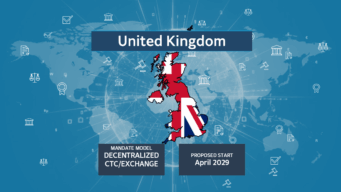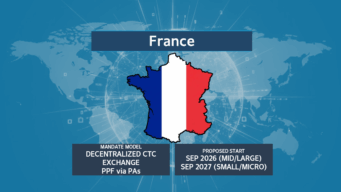November 2025
Phase 2 confirmed and technical refinements announced
Malaysia’s e-Invoicing mandate continues to advance, with the Inland Revenue Board of Malaysia (IRBM) reaffirming that Phase 2 will go live in January 2025 as planned. This phase brings medium-sized taxpayers into scope, so businesses should ensure readiness now.
Technical enhancements: IRBM has introduced API improvements to support batch submissions, making integration more efficient for organizations handling high invoice volumes. The latest technical guide (v2.3) also includes new validation rules for credit and debit notes—an important detail for those managing adjustments.
While these changes are incremental, they signal continued refinement of the MyInvois framework and underscore the importance of staying aligned with evolving requirements. OpenText remains committed to helping customers navigate these updates and prepare for compliance across all phases.
July 2024
Malaysia relaxes mandate penalties at the 11th hour
The e-Invoicing for Tax Reporting & Compliance mandate in Malaysia is set to take effect on 1st August 2024. Technical specifications have been updated as recently as June 2024, raising concerns among service providers and taxpayers about the readiness of the new system.
In a recent announcement, Saiful Izwan Mohd Shazali, the Director of National e-Invoicing & Standardisation at MDEC (Malaysia Digital Economy Corporation), provided an update which is good news for all concerned.
Flexibility for Taxpayers
To ensure a smooth transition to e-Invoicing, the Inland Revenue Board of Malaysia (IRBM) has announced that the Government will provide flexibility to taxpayers. This flexibility will be in effect for 6 months from the commencement date of mandatory e-Invoicing.
During this period, taxpayers are allowed to issue a consolidated e-Invoice for all transactions. This includes all activities and industries, even those issuing self-billing e-Invoices. Furthermore, any transaction description can be entered in the “Product or Service Description” field. If there is an e-Invoice application from the buyer, the seller is also allowed to only issue a consolidated e-Invoice without issuing an e-Invoice for each transaction.
No Prosecution for Non-Compliance
LHDN also stated that, within the said 6 months, there will be no prosecution action under section 120 of the Income Tax Act 1967 against non-compliance with the e-Invoicing rules. This is provided that the taxpayer complies with the consolidated e-Invoicing requirements as stated above.
Grace Period
The grace period given is expected to give sufficient time to taxpayers to ensure the full implementation of e-Invoicing. This is seen as a more effective solution covering all aspects such as system availability, smooth business operations, and change management in business.
Incentives for Early Adopters
To recognize taxpayers who successfully implement e-Invoicing according to the set timeline (without using the above relaxation), a reduction in the capital allowance claim period from three (3) years to two (2) years will be granted. This is for the purchase of ICT equipment and computer software packages effective from Assessment Year (TT) 2024 to TT 2025.
Conclusion
This announcement marks a significant step in Malaysia’s journey towards digitization and standardization of tax reporting and compliance. The flexibility and incentives offered are expected to encourage businesses to adopt e-Invoicing, leading to smoother business operations and more efficient tax compliance.
Stay tuned for more updates on this topic as we continue to monitor the situation and provide timely updates to help businesses navigate these changes.
How OpenText can help
For customers who have not yet deployed a solution, OpenText is ready to assist in achieving compliance. The OpenText e-Invoicing solution caters to all your business-to-business (B2B) and business-to-government (B2G) invoicing needs. Delivered as a fully managed service, it eases the burden of daily invoice operations and ensures ongoing compliance in over 50 countries..
As an accredited PEPPOL Service Provider for Malaysia, we provide our clients with a seamless e-Invoicing solution that meets this mandate streamlining your accounting processes and delivering efficient tax compliance.
In addition, our e-Invoicing mandate readiness check service is available to aid customers in assessing the output from their ERP, finance and accounting systems to ensure it meets the new legislation.
Reach out to your OpenText account representative or contact us here.
February 2024
Malaysia’s clearance e-Invoicing mandate – what we know so far
Malaysia has joined the increasing number of countries to announce a new mandatory e-Invoicing regime. As well as targeting tax compliance and reducing “tax leakages”, the system will make tax reporting more efficient. In addition, the stated goals of the mandate include improvement in business efficiency and supporting the digital economy.
While e-Invoicing has been possible since 2015, it has been optional and not widely adopted. The new plans announced by the Inland Revenue Board of Malaysia (IRBM) for a Continuous Transactional Controls (CTC) mandate will be phased in over a period of years based on company revenue.
Malaysia MyInvois portal – high level details
The Malaysian approach includes a central government platform, called “MyInvois” which will validate invoices; hence it is classed as a clearance model. The MyInvois platform will approve invoices prior to issuance and add a unique digital Certification Serial Number to the invoice. Once verified, the supplier must share the validated e-Invoice with the buyer or customer.
Companies can connect directly to the MyInvois portal, or use their own application, as long as it is able to integrate via the published Application Programming Interface (API).
For those with low volumes of invoices, connecting to MyInvois directly is possible. Here, invoices can be entered manually through a web form, or uploaded individually or as a batch using a spreadsheet. The portal supports all essential e-Invoice actions, including invoice generation, submission, viewing, cancellation and rejection.
Cancellation or rejection needs to occur within 72 hours from the time of validation.
The API option can be enabled through an existing business application such as your ERP if it supports the API, or through a service provider. Invoices can be submitted in XML or JSON format.
There are 55 mandatory fields required under the new system as well as additional annexes for certain circumstances.
Invoices that fail to include the mandatory content or are not in the correct format will be rejected automatically.
More details of the functional and technical requirements can be found at the IRBM portal here.
Scope
The scope of the mandate will cover both domestic and cross-border transactions. Both imports and exports will need to be reported to the IRBM MyInvois portal.
Invoices, credit notes, debit notes and refund notes are all in scope of the mandate. Self-billed invoices are also in scope. There are some exemptions, which are detailed in the technical specifications available on the IRBM Portal.
Timeline
The initial implementation date of the mandate has been deferred from June 2024 to August 2024 and slightly simplified from four phases to three. The timeline is now as follows:
- For taxpayers with an annual turnover exceeding RM 100 million, the applicable date is now August 1, 2024.
- For taxpayers with an annual turnover between RM 25 million and RM 100 million, the applicable date remains January 1, 2025. This simplifies the timeline by removing an additional phase which had originally been slated for January 1, 2026, for businesses with an annual turnover between RM 25 million and RM 50 million. These are now all included in the earlier date.
- Finally, for all remaining taxpayers, the mandatory e-invoicing implementation starts on January 1, 2027.
How we can help
As the clock ticks down to August 2024, businesses operating within Malaysia need to gear up for the new mandate.
OpenText are prepared to assist customers meet the deadlines above. In addition, our e-Invoicing mandate readiness check service is available to aid customers in assessing the output from their ERP, finance and accounting systems to ensure it meets the new legislation. Reach out to your OpenText account representative or contact us here.
Disclaimer: This newsletter is intended to reflect the direction the industry is moving and does not a reflect a commitment for the OpenText Active Invoices with Compliance (AIC) product development roadmap to meet any particular stated regulations.
LEGAL Disclaimer: The information contained in this newsletter is for general guidance on matters of interest only. The authors are not herein rendering legal, accounting, tax or other professional advice and the content should not be used as a substitute for consultation with professional accounting, tax, legal or other competent advisers. While we make every attempt to ensure the accuracy of the information contained within is from reliable sources, OpenText is not responsible for any errors or omissions, or for any result




